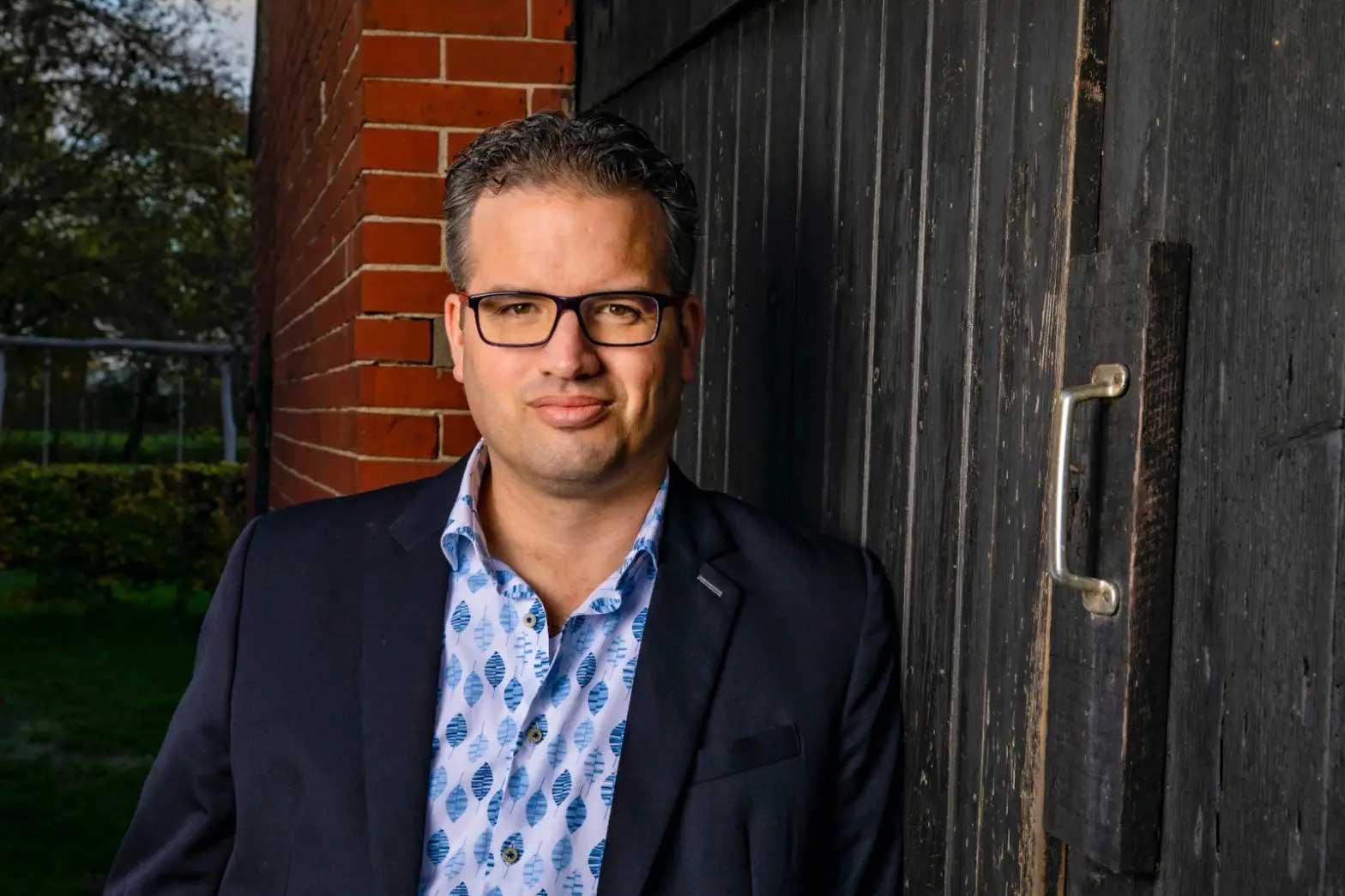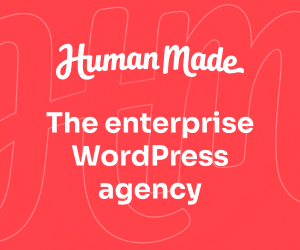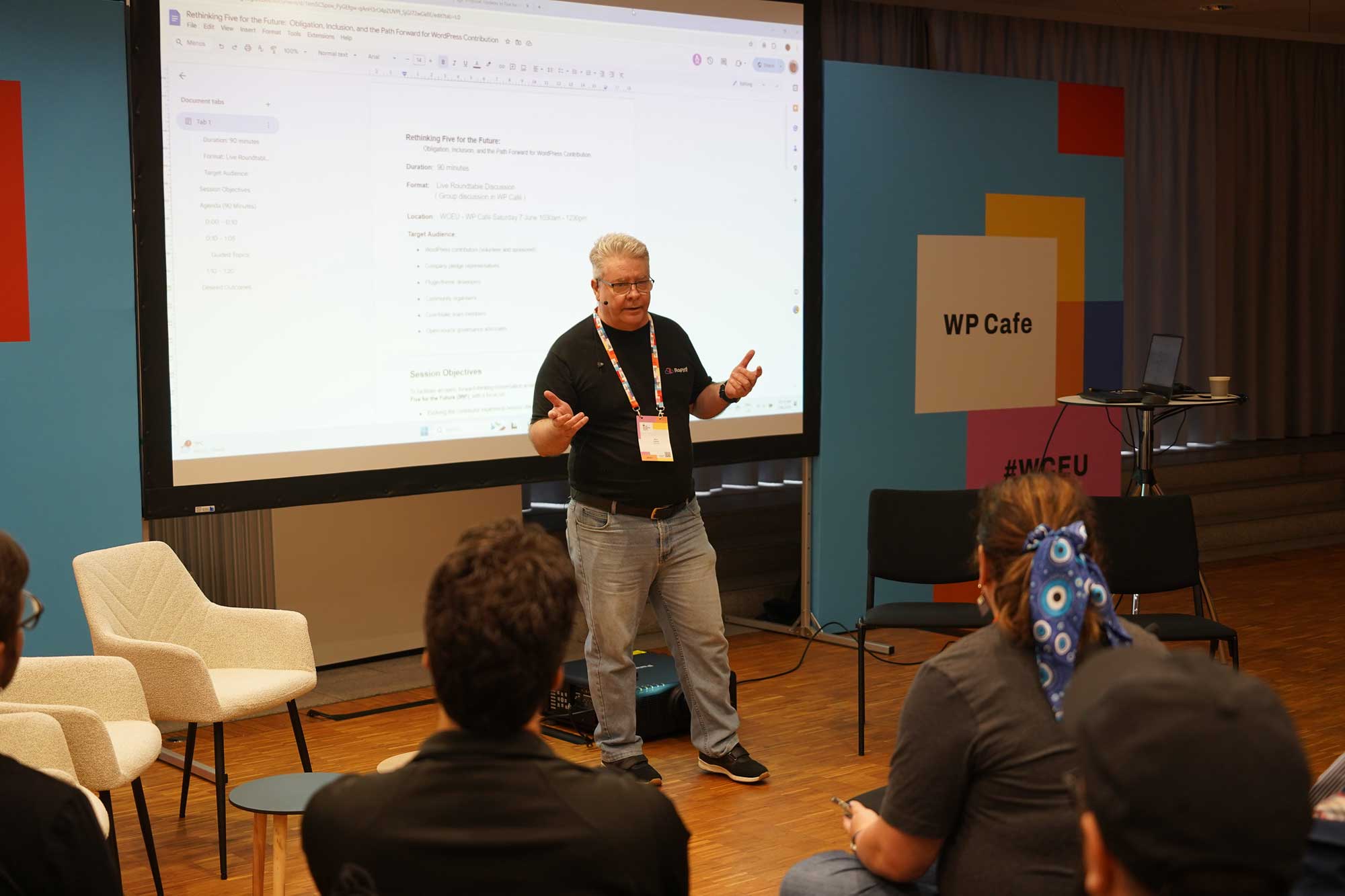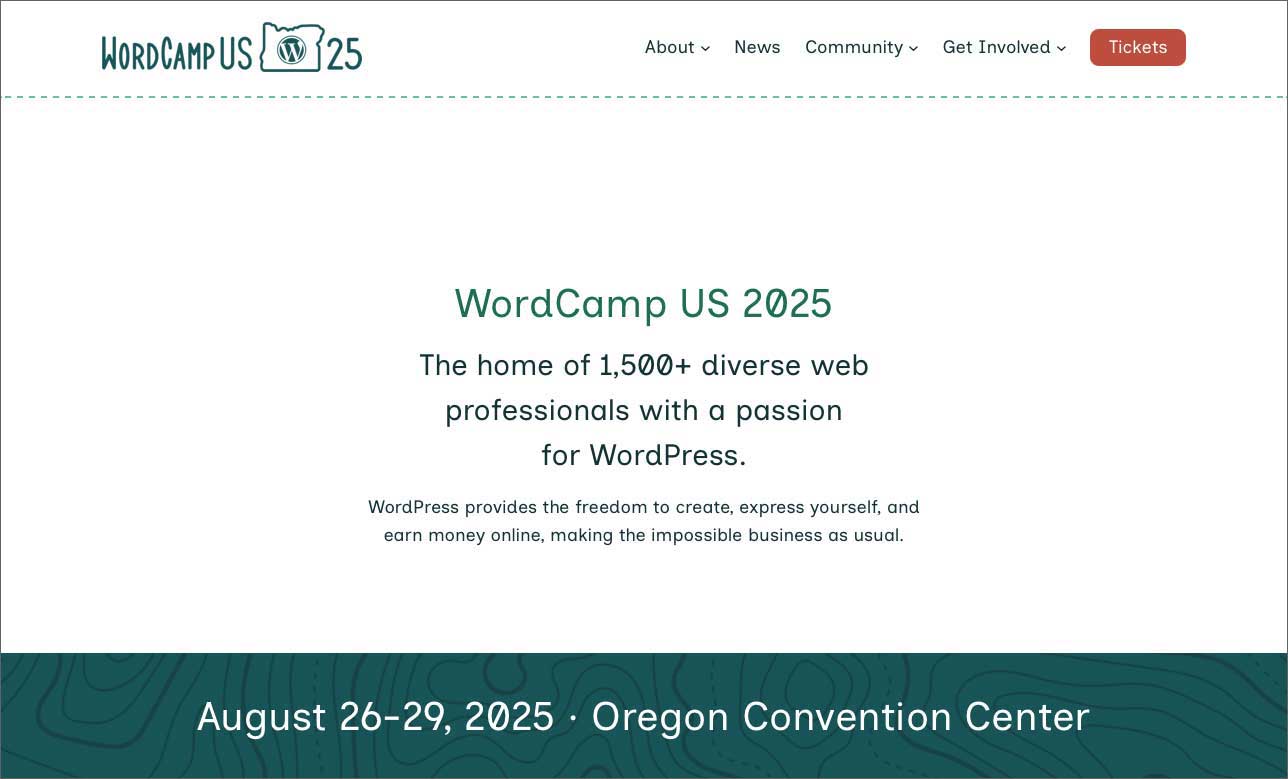Joost de Valk, a long-time figure in the WordPress community, has called for radical change to WordPress leadership, today publishing his vision for a new era of WordPress—and putting his hand up to lead the community through the change.
In a post titled Breaking the Status Quo, de Valk disagrees with WordPress co-founder Matt Mullenweg’s self-assessment that he’s an “enlightened leader,” instead describing WordPress’s benevolent dictator for life (BDFL)—a title given to a small number of open-source software development leaders—as “no longer benevolent.”
“I’m still, to this day, very thankful for what Matt has created. I would love to work with him to fix all this,” de Valk said. “But it’s clear now, that we can no longer have him be our sole leader, although I’d love it if we could get him to be among the leaders.”
de Valk proposes the creation of a WordPress Foundation-like entity to take over the project’s leadership and key assets from co-founder Matt Mullenweg. He also wants to see the WordPress trademark relinquished to the public domain, companies, and individuals able to sponsor the foundation-like entity, as well as the creation of several small teams that would be responsible for various functions, like architecture, products, and events.
de Valk says WordPress needs a “board,” a concept he wrote about in September following Mullenweg’s WordCamp US keynote where his war with WP Engine became public.
The proposal aims to democratize decision-making, decentralize control, and ensure the sustainability of the open-source project.
A key element of de Valk’s plan is the introduction of “Federated and Independent Repositories”—a decentralized approach to plugin and theme hosting. This initiative would allow alternative hosting outside of WordPress.org, addressing recent challenges like the takeover of the ACF plugin and ensuring that no single party controls updates or plugin distribution.
“Matt might not agree to my first five points above. However: we can still work on the Federated and Independent Repositories without his permission, because frankly, we don’t need it,” said de Valk.
He is already in discussions with prominent business figures and community leaders, including Crowd Favorite CEO Karim Marucchi, who has thrown his support behind de Valk.
“I’m here, and willing to lead through this transition. I do have the time, the energy and the money needed to fund myself doing it,” said de Valk.
“I’ve worked in this industry and this community for close to 20 years and it’s very dear to me. Thanks in large part to the WordPress project, I have the privileged position to be able to drop and/or delegate some of the stuff I’m working on and start working on this.
“Let me be clear though: we should not replace one BDFL with another. This is a moment of transition. I’m also very willing to work with other leadership if it turns out the community wants someone else.”
de Valk’s push for change comes amid Mullenweg’s ongoing legal battle with WP Engine, which has rocked the community since the WordPress co-founder launched a public campaign against the hosting company in September.
It also follows the release of an open letter by anonymous core committers and veteran contributors calling on Mullenweg to work with the community instead of continuing to act unilaterally.
In a separate blog post complementing de Valk’s, Marucchi shared his vision for a WordPress business roadmap and backed de Valk, a long-time leader in the WordPress community, as the best person to steer change and secure support.
“I believe Joost brings the ideal blend of project experience, community respect, and ecosystem business insight to guide this transition and work collaboratively with Matt and others,” said Marucchi. “I support his outline and stand with Joost and those in the community who have contributed more than I have, saying, ‘Let’s do this together.’”
Marucchi has proposed five “critical paths” to support WordPress business continuity: securing the support chain and modernization; convening, defining, and creating the commons; defining WordPress’s roadmap as “the” open web’s operating system; using open source as a hub for innovation; and focusing on leading data ownership, privacy, and accessibility.
“We need to prevent a single entity from doing to WordPress what befell other open-source projects that shrank or died while protecting one party’s market position,” Marucchi said.
“We need a consultative approach, working closely with the community, ecosystem partners, and the existing WordPress infrastructure to guide us from our current position toward a long-term solution that we have yet to define,” said Marucchi.
de Valk and Marucchi plan to meet with community and industry leaders in mid-January 2025 to decide the next steps.









Comments
5 responses to “Joost de Valk Calls for End to Matt Mullenweg’s BDFL Leadership of WordPress”
Stuff is going down. I think whatever happens Joost needs to be involved. I trust Joost and value his input.
This is total nonsense.
Asking an “enlightened leader” to give up control of assets that are worth hundreds of millions. Only a stupid person would relinquish this power.
Matt might be a lot of things, but stupid he is not.
All this could have been avoided, The log-in restrictions didn’t need to be put in place, Automattic didn’t need to take over Advanced Custom Fields, Matt didn’t need to start a war with WP Engine during his public WordCamp US keynote.
Thank you!
This is my open reply to Joost:
https://patriciabt.com/blog/open-reply-to-joost-on-wordpress-leadership/
I wish everyone a happy holiday season, if you have one, and hope that 2025 brings restored trust in the WordPress project.
I totally agree. WordPress needs a change. Many of the recent events could have been avoided or handled much better. But if WordPress is to thrive in the future, things need to change. Matt probably needs to step aside and let a WordPress Foundation-like entity take over.